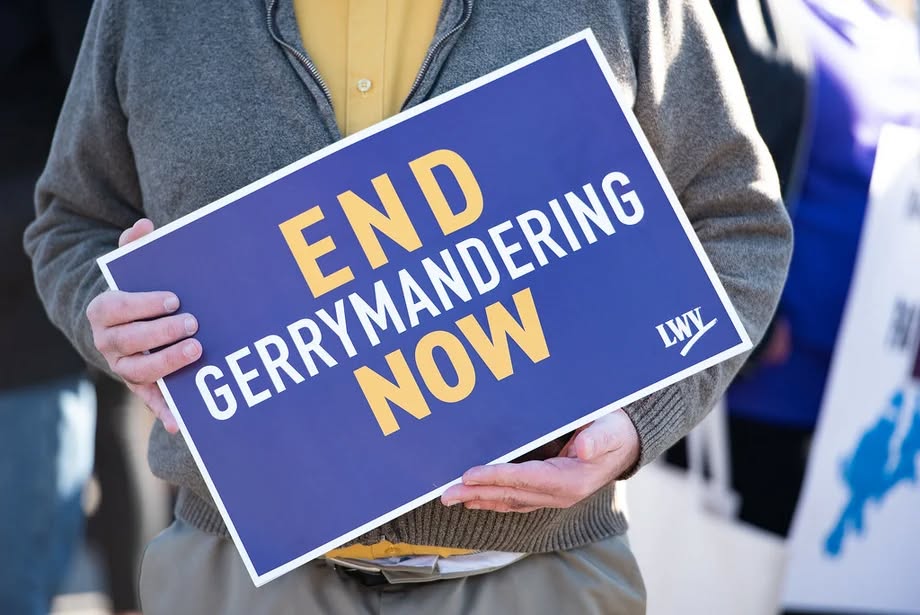Before legislators redraw Pennsylvania’s electoral maps in 2031, it is critical that the state establish an independent redistricting commission to prevent partisan gerrymandering of electoral districts.
This was the topic of conversation at a Thursday webinar, titled “Why PA Needs Independent Redistricting.” The virtual session is part of a series of “Breakfast Briefing” webinars hosted by Represent PA, an organization which endorses progressive, Democratic women for political offices across the state.
Represent PA held the webinar in response to Pennsylvanians’ questions regarding how their state fits into the contentious battle currently raging across the country over congressional redistricting. This summer, Texas Republicans have fought to ram through legislation – at the request of President Donald Trump – to redraw their electoral maps and all but ensure adding five new GOP seats to the U.S. House of Representatives. States typically redraw their maps at the beginning of each decade, but an attempt to do so mid-decade, with the express purpose of delivering seats to protect the president’s power, is unprecedented.
In response, many Texas House Democrats left the state to prevent Republicans from reaching quorum, disallowing the legislation to pass. They returned after two weeks and the bills moved through the House and Senate, with Governor Abbott set to sign the maps into law in the near future.
Groups representing Black and Latino voters have already filed suit against Texas’ new maps, citing racial discrimination, with more court challenges expected to follow. Blue states have threatened to counter Texas’ partisan gerrymandering by redrawing their own maps, and the fight over redistricting will likely remain a hot topic in the lead-up to the 2026 midterm elections.
READ: The Gerrymandering Wars Is a Flashing Warning Light for US Democracy
With more states, including California, Missouri, New York, Wisconsin, Maryland, Florida, Ohio, Indiana, and Kansas all considering partisan redistricting efforts, many Pennsylvanians are wondering if they might be next.
The short answer is probably not, according to Carol Kuniholm, the webinar’s first speaker.
“Our congressional map is enacted as a bill, and it must pass in both chambers and be signed by the governor if there’s divided government,” she said. “That gives us some protection against crazy stuff going on [like in Texas].”
Kuniholm is Chair of Fair Districts PA, a nonpartisan group which has advocated for an end to partisan gerrymandering in Pennsylvania since 2016. The solution to the blatant gerrymandering happening in Texas is an independent redistricting commission, said Kuniholm. Independent redistricting commissions are bodies separate from the legislature that take the redrawing of maps out of the hands of partisan legislators. Only four states—Arizona, California, Colorado, and Michigan—currently have maps drawn by independent commissions.
Although Pennsylvania may, for now, be safe from a redistricting fight, the state has a history of partisan gerrymandering. After gerrymandered 2011 maps benefitted Republicans in the 2012 election, the League of Women Voters sued, saying they violated Pennsylvanians right to free and fair elections. The case eventually went to the Supreme Court, who declared the maps unconstitutional. Former Governor Tom Wolf rejected another map in 2022 which would have benefitted Republicans, and in the end, the Pennsylvania Supreme Court approved a fairer map put forward by a group of voters backed by Democratic lawyer Marc Elias.
The most infamous example of gerrymandering from the 2011 map is the “Goofy Kicking Donald Duck” Seventh Congressional District. The district became a national joke and highlighted the comical abuse of partisan gerrymandering. Image courtesy of Wikimedia Commons.
According to Kuniholm, there are broader ramifications to gerrymandering in Pennsylvania politics. For one, elected officials in districts where they’re unlikely to be voted out are much less responsive to the needs of their constituents. Second, representatives with whom Kuniholm spoke said that party leaders sometimes told them “vote the way I tell you, or we’ll draw you off the map,” referring to their alleged ability to gerrymander at will. Threats of this nature give party leaders exorbitant power to enact legislation that benefits their own interests rather than the people they represent.
Kuniholm said that establishing an independent redistricting commission is critical to preventing another 2011 map situation, because “no one knows who controls the State House or Senate in 2031. No one knows who will be sitting in the governor’s office, who will hold the Supreme Court majority. So no one knows who will have the final say in determining voting districts. What we do know for sure is when one party uses redistricting to hold control, the partisan divide grows and voter distrust increases.”
State Representative Christina Sappey (D-Chester), the webinar’s second speaker, noted that effects of voter mistrust are becoming apparent in her county’s voter registration efforts.
“Both parties are losing registration right now. People are really unhappy with partisan politics, and they have been for some time, but now they’re walking away, and they’re either registering as independents and/or they’re not showing up to vote,” she said. “What this says to me is, [those people think] this system is rigged.”
One major implication of gerrymandering prior to the 2022 redrawing, according to Rep. Sappey, was that it separated voters in the same geographical area with similar interests into different districts, while forcing divided people together. “I’m pitting people in the mushroom industry and a more agricultural community against the interests of people living in a very dense community outside of Westchester borough [in Chester County]. And how do you govern that way?”
Rep. Sappey is one of eight cosponsors on House Bill 31, a legislative proposal, alongside Senate Bill 131, which would establish an independent redistricting commission in Pennsylvania through a constitutional amendment. “I believe strongly in it,” Rep. Sappey said of the bill.
The process of enshrining a new amendment may take years, which is why legislators like Sappey and advocacy groups like Fair Districts PA are acting well prior to 2031. Kuniholm told people who want districting reform to be “loud” and show legislators they care about this issue. Fair Districts PA has ways to get involved through their website and Fix Harrisburg, another site dedicated to preventing “partisan gatekeepers” from blocking legislation. Represent PA also urged concerned Pennsylvanians to get involved in the upcoming elections by donating to and volunteering with their organization.






